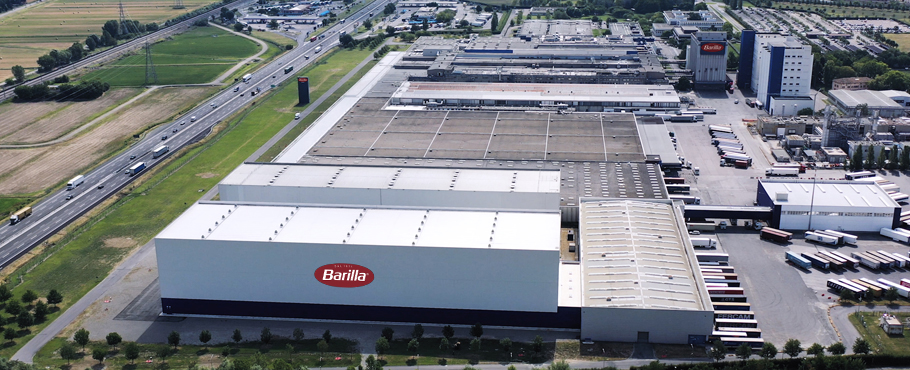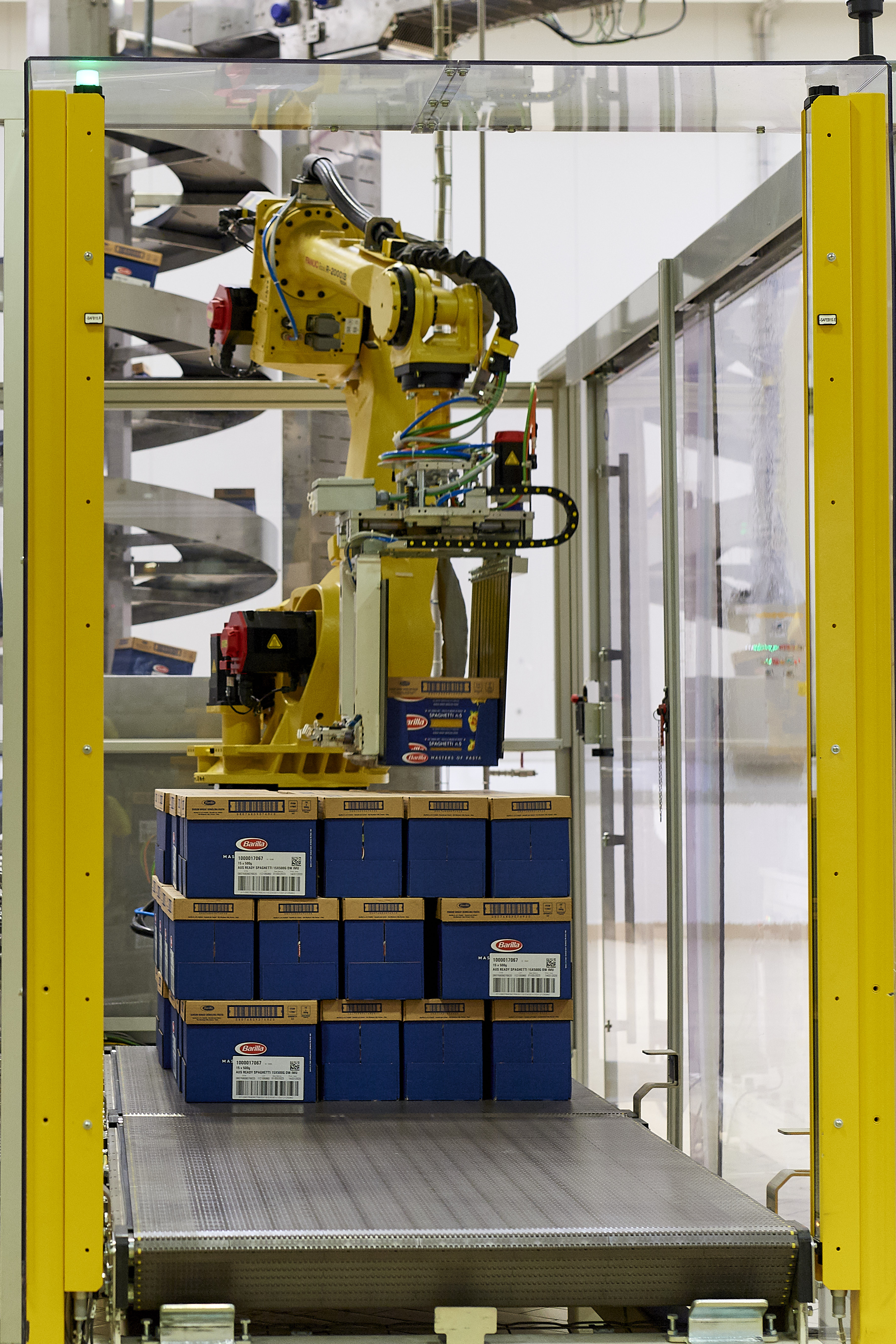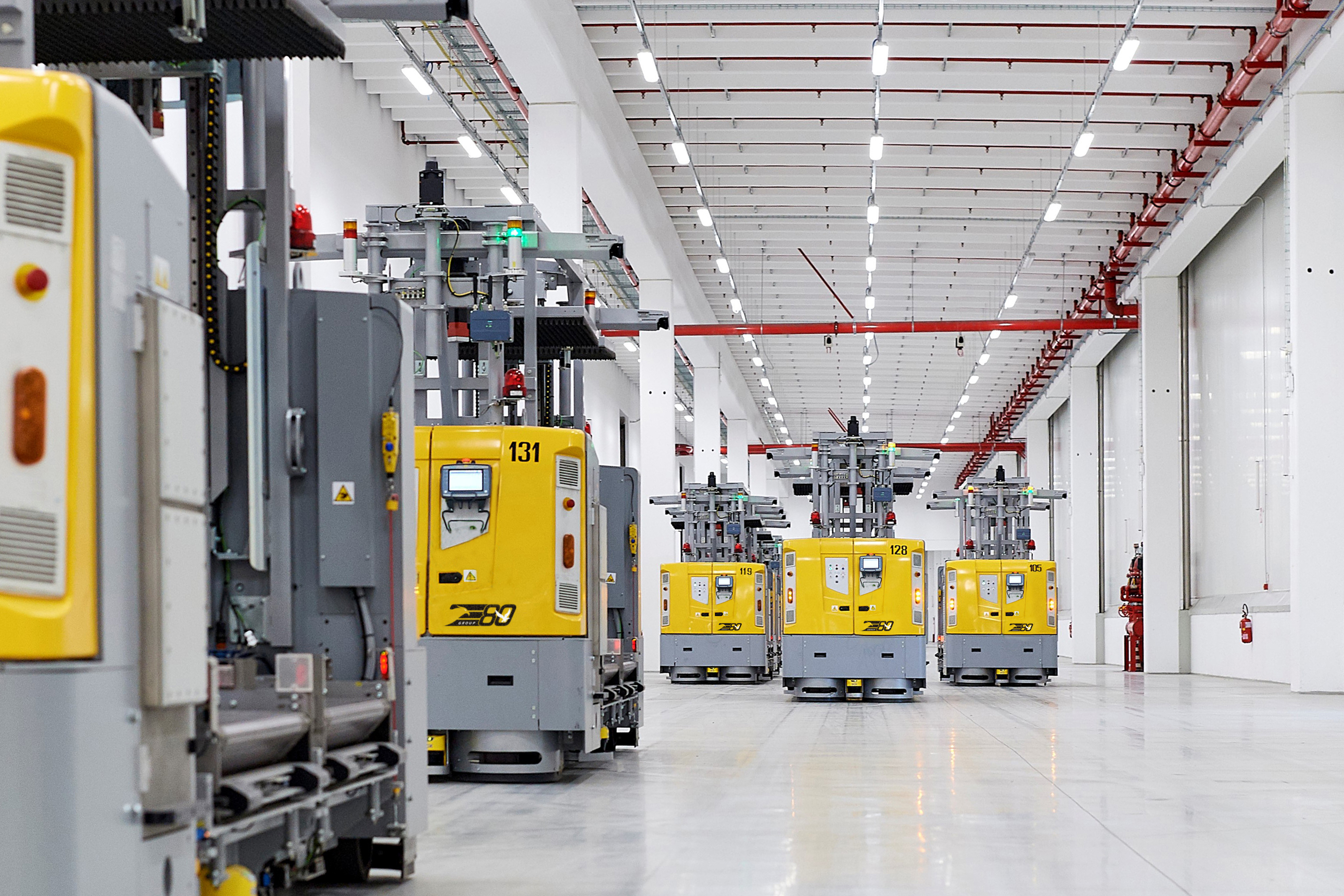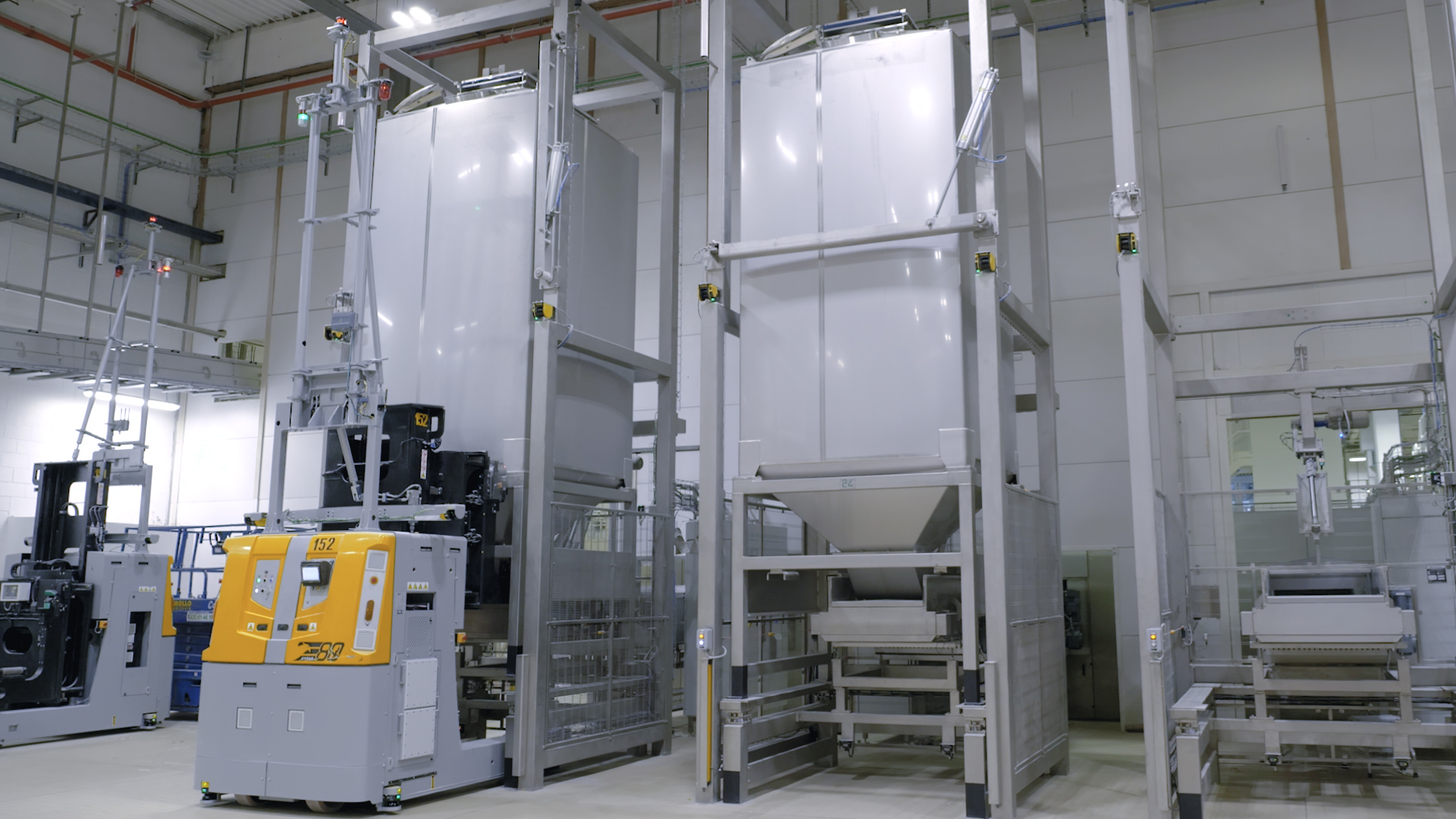Industrial Innovation: Barilla and E80 Group redefine the Factory of the Future

A sustainable and interconnected Smart Factory model where all operations are seamlessly integrated
Owned by its namesake family since 1877, Barilla is the world's leading pasta producer, owning 21 brands and producing pasta in more than 160 shapes and sizes, distributing it in more than 100 countries.
THE 360-DEGREE COMMITMENT TO SUSTAINABILITY
Barilla is not only renowned for its products, which are on the tables of much of the world's population, but is also known for its ongoing commitment to the environment, as evidenced by its achievements in pursuit of the United Nations Sustainable Development Goals.
Results achieved year after year thanks to people and a careful approach to the supply chain, packaging, production and distribution processes. By optimizing production processes, Barilla reduces greenhouse gas emissions, energy consumption and water consumption. 64 percent of the electricity used in Barilla's factories comes from renewable sources, and since 2010 it has reduced water consumption by 24 percent and CO2 emissions by 32 percent. The focus has been the digitization of its pasta production plant in Parma, a showcase of Industry 4.0 that combines robotics with energy and environmental efficiency.
"For us, strong process improvement means not only economic competitiveness, but also reducing environmental impact. Automation offers us this potential and we are trying to make the most of it," explains Alessandro Spadini, Barilla plant manager. These sustainability goals are aligned with our way of doing business, 'Good for You, Good for the Planet.' To achieve them, the entire production chain was rethought and redesigned in a completely sustainable way, integrating every single phase of the process. The transformation of the Parma plant is a key step in this journey, undertaken together with E80 Group through the development of flexible systems capable of contributing significantly to improving the way we work and distribute. The implementation of automated and integrated solutions allows us to adapt in speed to the needs of the market, and this implies lower energy consumption and reduced waste."
AN INTEGRATED AND AUTOMATED SMART FACTORY
Barilla's 165,000 sq. m. covered plant is equipped with 107 laser-guided vehicles, 35 robotic systems, including palletizers, labelers and wrappers, and AS/RS CraneStore high-density warehouses. The different systems communicate with each other through E80 Group's proprietary software that manages all flows.
"Within the Parma plant," explains Enrico Grassi, president of E80 Group, "the SM.I.LE80 platform integrates processes ensuring maximum operational flexibility and scalability of solutions. SM.I.LE80 communicates with lines, coordinates product handling with LGVs and AGVs, warehouse storage, organizes and plans transports to end customers, integrates manual and automated operations, communicates with the customer's factory management system (ERP) and supervises real-time performance, ensuring total product traceability, maximum efficiency and safety along the supply chain.
One of the most important innovations has been the development of palletizing islands without the use of the wooden pallet. A technology patented by E80 Group that has enabled Barilla to increase food safety within the plant by reducing the risk of contamination associated with the introduction of wooden pallets into the production area. The pallets are placed in the wrapping and labeling islands after being thoroughly checked by an inspection system.

Then, among the solutions adopted to optimize intralogistics flows, the laser-guided automated vehicles designed to handle pallets and packaging materials stand out, capable of interfacing with all systems, from the palletizer to the warehouse to shipping, guaranteeing flexibility, modularity and scalability of the system. A technology that together with high-density storage has led to the elimination of more than 3 thousand truck trips per year to outside warehouses, lowering CO2 emissions, cutting lighting costs by 30 percent and heating costs for these facilities by 40 percent.

One of the latest implementations developed to effectively meet Barilla's needs was the automated and integrated management of the area where the silos of short pasta are located, ready to be packaged. As Spadini explains, "It becomes necessary to critically rethink our processes to include automation that allows us greater flexibility, adaptability and responsiveness. In this process we have begun to question what were the more traditional process steps in our factory. One of the latest innovations is a kind of Copernican revolution: we used to use fixed silos to handle the semi-finished dough; everything else around was mobile. We have done the opposite, that is, we have made the silos mobile and everything else fixed. This brought the product back to the center, giving a demonstration of how revisiting the process brings us greater benefits."

Another decisive element is the AS/RS CraneStore® high-density automated warehouse that uses six stacker cranes equipped with automatic product handling devices. The warehouse is seamlessly integrated with LGV technology, which makes the entire solution flexible because each warehouse entry or exit is independent, eliminating the risk of bottlenecks. Because they can operate at heights of up to 35 meters, these systems incredibly increase storage capacity. AS/RS Stacker Crane technology also minimizes energy consumption and maintenance requirements.
Another storage solution that provides high saturation is the LGV-managed Drive-in. This system provides an additional 50,000 pallet spaces for finished and ready-to-ship products.
"With E80 Group we are also developing additional custom solutions, and it's kind of the DNA of our relationship, that of not buying something by the catalog, but together developing it and maybe even setting the bar always very high in our relationships. - Spadini concludes -
We are thinking of expanding the application of automated and integrated systems to other very traditional process steps as well, ranging from raw material management to truck loading.
Having automated, having integrated and having made our distribution center extremely flexible, adaptable also means responding extremely effectively to market demands. While simultaneously reducing our environmental impact significantly! So for us it's an indispensable lever, we will never do without it again, in fact it's starting to become tight what we have, stimulating us even to more innovative solutions and more pushed automation."
Watch the interview with Alessandro Spadini, Plant Director at Barilla:
